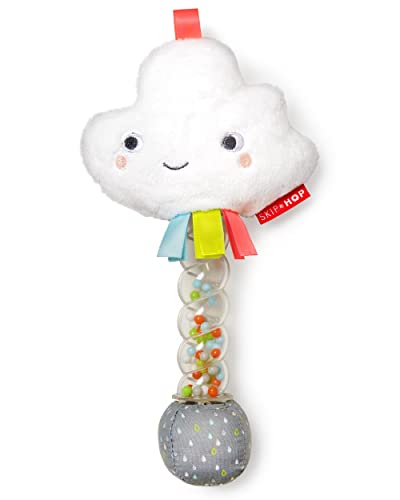When Will My Baby Start Babbling? Bringing a new baby into the world is an incredible journey filled with milestones. Among the most exciting is witnessing your little one’s first attempts at communication. From cooing to babbling and eventually uttering those precious first words, language development is a fascinating process. But when exactly should you expect your baby to start babbling?
This comprehensive guide will walk you through the key language milestones from birth to 12 months, helping you understand what to expect and how to support your baby’s communication journey.
What are the Earliest Stages of Communication?
Even before babbling begins, your baby is communicating with you from day one. These early stages are crucial for building a foundation for language development.
Cooing: The First Vocalizations
Around 1-3 months, babies typically start cooing, which involves making soft, vowel-like sounds like “ooo” and “ahh.” These sounds are a significant step up from crying and represent your baby’s first attempts at vocalization. Cooing is often a response to interaction and can be a sign that your baby is happy and content. By the end of 3 months, babies will smile when you show up, make cooing sounds, and quiet or smile when spoken to.(Mayo Clinic)
Responding to Sounds and Voices
Even in the first few months, babies are highly attuned to sounds and voices. They will often turn their heads towards familiar voices and may quiet down or become more alert when they hear you speak. This early awareness of sound is critical for language development, as it helps babies begin to distinguish different sounds and patterns. They also seem to know your voice at this stage.(Mayo Clinic)
Giggles and Laughs
Around 4-6 months, babies often begin to giggle and laugh, which are delightful milestones for parents. These sounds indicate growing social and emotional development and demonstrate your baby’s increasing ability to interact with the world around them. Giggles and laughs are also forms of communication, expressing joy and amusement.(ASHA)
When Does Babbling Typically Start?
Babbling is a major milestone in language development, marking a significant step towards speech.
The Babbling Stage: 4-6 Months
Most babies start babbling around 4 to 6 months of age.(skillpointtherapy.com) This involves experimenting with different sounds and syllables, such as “ba,” “da,” and “ga.” Babbling is essentially your baby practicing the speech sounds that will eventually form words. This stage is crucial because it lays the groundwork for more complex language skills. Around this age, babies begin to babble, experimenting with a range of sounds and syllables.(Kutest Kids)
Varied Consonants
As babies get closer to 6 months, their babbling becomes more varied, including a wider range of consonant sounds. You might hear combinations like “dadadada” or “babababa.” This is a sign that your baby is gaining more control over their vocal cords and is exploring different ways to produce sounds. First true babble (varied string of consonants) can start around 6.5 months.(Reddit)
Imitating Sounds and Gestures
Between 6 and 11 months, babies start imitating sounds and gestures.(healthline.com) This is a critical development, as it shows that your baby is beginning to understand the connection between sounds and actions. Imitation is a key component of learning language, as babies learn by observing and copying the people around them.
What is Conversational Babbling?
As your baby’s babbling progresses, it will start to sound more and more like real speech.
Baby Jargon
Around 10-12 months, babies often enter a stage called “conversational babbling,” or “baby jargon.” This involves using a combination of babbling sounds and intonation patterns that mimic the rhythm and flow of adult speech.(connectedspeechpathology.com) You might notice your baby using pauses, turn-taking, and varying their pitch, just like in a real conversation. It can appear as an adult talking. (connectedspeechpathology.com)
Understanding and Responding to NamesBy 10 months, babies typically recognize their own names and will respond when called.(healthline.com) This shows that they are beginning to understand that words have meaning and that they are distinct individuals. Responding to their name is a significant milestone in their cognitive and social development. Responds to own name.(Child Mind Institute)
Using Gestures
Gestures are an important part of communication, even before babies start using words. Between 6 and 11 months, babies will use gestures, such as pointing, waving, and reaching, to communicate their needs and desires. These gestures help them express themselves and interact with the world around them.
What Comes After Babbling?
The babbling stage eventually leads to the emergence of first words.
First Words: Around 12 Months
Most babies say their first words around their first birthday. These words are usually simple and refer to familiar people, objects, or actions, such as “mama,” “dada,” “ball,” or “dog.” The ability to say and understand words marks a major leap forward in language development.
Combining Words
As babies get closer to 18 months, they may start combining two words together, such as “more milk” or “daddy go.” This is a sign that they are beginning to understand the grammatical structure of language and are able to express more complex ideas.
Vocabulary Growth
Between 18 months and 2 years, a toddler’s vocabulary typically explodes. They will learn new words at a rapid pace and will start using them to communicate more effectively. This is a crucial time for language development, and parents can support their child’s progress by talking to them frequently, reading books, and engaging in interactive play.

How Can I Encourage My Baby’s Language Development?
There are many things you can do to support your baby’s language development from birth.
Talk to Your Baby
One of the most effective ways to encourage language development is to talk to your baby frequently. Describe what you are doing, name objects, and narrate your daily activities. The more language your baby hears, the better equipped they will be to learn and use it themselves.
Read to Your Baby
Reading to your baby is another great way to promote language development. Choose books with colorful illustrations and simple text, and read them aloud with enthusiasm. Point to the pictures and name the objects, and encourage your baby to interact with the book.
Respond to Your Baby’s Sounds and Gestures
When your baby makes sounds or gestures, respond to them with enthusiasm and encouragement. This shows them that you are listening and that their attempts at communication are valued. Imitate their sounds and gestures, and try to interpret what they are trying to communicate.
Play with Your Baby
Play is an essential part of a baby’s development, and it can also be a great way to encourage language skills. Engage in interactive games, such as peek-a-boo, patty-cake, and sing-alongs. These activities help your baby learn new words and concepts, and they also promote social and emotional development. Laughing tip would be to play peek-a-boo often.(Reddit)
Create a Language-Rich Environment
Surround your baby with a language-rich environment by providing them with opportunities to hear and use language in a variety of contexts. Talk to them throughout the day, read books, sing songs, and engage in conversations. The more language your baby is exposed to, the better equipped they will be to learn and use it.
What If My Baby Isn’t Babbling Yet?
It’s important to remember that every baby develops at their own pace. If your baby isn’t babbling by 7-8 months, it doesn’t necessarily mean there’s a problem. However, it’s always a good idea to talk to your pediatrician or a speech-language pathologist if you have any concerns about your baby’s development.
Consult a Professional
A speech-language pathologist can assess your baby’s language skills and provide you with guidance and support. They can also help you identify any potential problems and develop a plan to address them. Early intervention is key to ensuring that your baby reaches their full potential.
Developmental Milestones
Keep track of your baby’s developmental milestones and discuss any concerns with your pediatrician. The CDC has a checklist of milestones to help you keep track of your baby’s development.(CDC)
Conclusion:
Witnessing your baby’s language development is an exciting and rewarding experience. By understanding the key milestones and providing a supportive environment, you can help your little one reach their full potential. Remember that every baby develops at their own pace, and it’s important to be patient and encouraging. If you have any concerns, don’t hesitate to consult with your pediatrician or a speech-language pathologist.
FAQs
Yes, it is normal for babies to babble in their sleep. This is because their brains are still developing and processing information, even when they are asleep.
While babbling is a common milestone, some babies may skip it altogether or babble very little. This doesn’t necessarily mean there’s a problem, but it’s always a good idea to discuss it with your pediatrician.
No, bilingualism does not typically delay babbling or speech. In fact, research has shown that bilingual babies may even have an advantage in certain cognitive areas.
Pay attention to the variety of sounds your baby is making, as well as their ability to imitate sounds and gestures. If you have any concerns, consult with a speech-language pathologist.
Signs of a language delay may include not responding to their name, not babbling by 9 months, not using gestures by 12 months, and not saying any words by 15 months. If you notice any of these signs, talk to your pediatrician.
References
I’m Cris Coelho, and motherhood has transformed my life!
As a speech therapist and early childhood educator, I’ve always been passionate about child development. But it was becoming a mother that truly opened my eyes to the real challenges and joys of this journey.
Here at Materníssima, I share everything I’ve learned — blending professional knowledge, real-life experience, and a heartfelt touch.
You’re very welcome here! 💕






